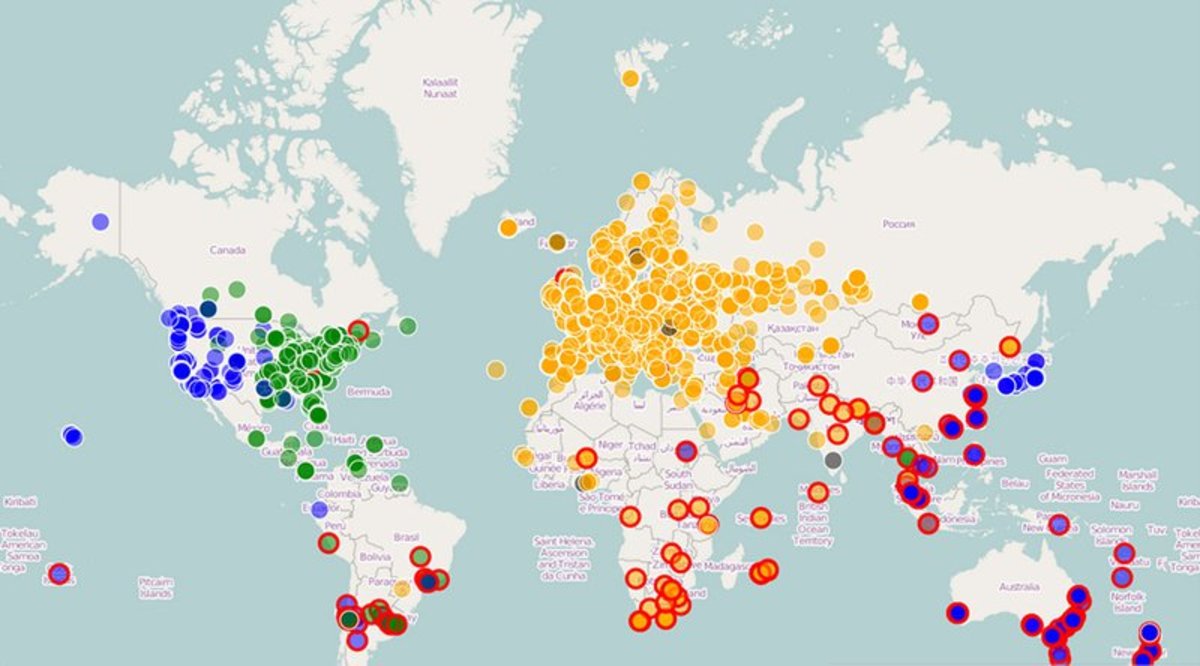
John Jegutanis, co-founder of bitcoin and altcoin mobile wallet
Coinomi, recently proposed the concept of ”Soft Blocks“ to help scale Bitcoin. Soft Blocks, Jegutanis says, could reduce the risk of increasing Bitcoin's block-size limit.
Speaking to Bitcoin Magazine, he explained: “It is not so much the block size – although yes, it must be increased – but the inefficiency of our current block relay mechanism that needs solving.”
The block-size dispute – which made headlines throughout 2015 – represents a trade-off between the number of transactions the Bitcoin network can handle and its decentralization.
While larger blocks would allow for more transactions, these blocks would take longer to propagate over the network. This could increase the rate of pruned (“orphaned”) blocks, as miners will build blocks on top of older blocks while newer blocks are still making their way to them. Some worry this would favor larger miners (and pools) more than smaller miners, as larger pools don't need to wait for blocks as often; they mine more blocks themselves. (Additionally, a higher prune rate would decrease Bitcoin’s security overall, as the hash power invested in these blocks doesn’t secure the network.)
Jegutanis' Coinomi was one of the first Bitcoin wallets to test Bitcoin XT – designed to hard fork a block-size limit increase through BIP 101. While Coinomi is compatible with Bitcoin XT, Jegutanis decided not to enable it in production until developer consensus has emerged.
Jegutanis still supports a hard fork to increase the block size, however, and proposes to decrease propagation time through Soft Blocks.
Similar to other potential block propagation improvements such as IBLTs and – in particular – “Weak Blocks,” Soft Blocks do away with the need to transmit full blocks over the Bitcoin network once a block is found.
Instead, miners can effectively transmit a confirmation and proof that they, indeed, found a block, which requires much less data to be sent around the network. This vastly decreases propagation time, limiting pruning risk.
“While it is true that slow propagation favors larger miners, I believe we can relegate this to a theoretical concern only,” Jegutanis explained. “In reality, miners will want to propagate their blocks to as many miners as fast as possible; they would be gambling otherwise. Solutions such as Matt Corallo’s relay network and soft blocks will help them with that.”
As such, Jegutanis believes the block-size limit should be increased more rather than less. While he supports the SegregatedWitness - heavy scalability road map as laid out by Bitcoin Core and Blockstream developer Gregory Maxwell, Jegutanis indicated he believes Bitcoin will need a hard fork to increase the block-size limit in the longer term.
“I think Segregated Witness is a really, really smart 'hack' that solves many problems,” Jegutanis said. “But it creates a new problem: It's effectively a block-size increase that the peer-to-peer network cannot efficiently handle. We, therefore, need a solution to increase block propagation as well, like soft blocks. And if we have that, we might as well increase the block-size limit a lot more. BIP 101 solves the problem of full blocks for once and for all. We will never hit this ceiling as we are hitting the 1 megabyte ceiling recently.”
Photo Emile Aben / Creative Commons










